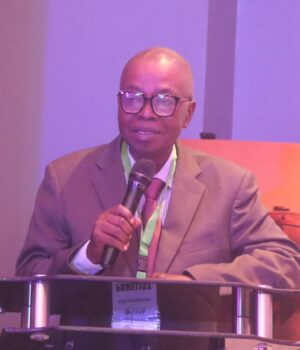Chairman of Avifuel Limited, Captain Augustine Inyang Okon, has unveiled a five-point framework designed to stabilise and reposition the aviation fuel market in Nigeria. He has further urged government and industry leaders to align policy, infrastructure, and innovation toward energy self-sufficiency.
Speaking during the CITA Energies Colloquium held on Thursday, October 23, 2025, in Lagos, Okon presented his paper titled “Opinion Poll on the Aviation Fuel Market in Nigeria”.
The founding Chairman/CEO, ADC Airlines outlined five strategic recommendations that, in his view, represent the foundation for long-term stability and competitiveness in the aviation fuel market Nigeria.
“We cannot keep flying by dead reckoning,” Okon said. “The world is moving toward energy independence and green flight; Nigeria must not be left taxiing on the runway.”
Aviation Fuel Market and the Road to Stability
Captain Okon’s five-point framework to secure the long-term stability of Nigeria’s aviation energy sector are not isolated ideas but interconnected pillars that must work together for real impact. He said the first and most crucial step is to anchor Jet A-1 supply to local refining capacity instead of foreign benchmarks. According to him, the nation must make full use of facilities like the Dangote Refinery and modular plants now coming onstream.
“For the first time in decades, we have the opportunity to produce and refine aviation fuel domestically,” he noted. “We must therefore base pricing and supply structures on local realities rather than foreign exchange fluctuations.”
Okon emphasised that linking Jet A-1 supply to local refining capacity would stabilise the aviation fuel market and shield airlines from foreign exchange volatility. He said it would further enhance the resilience of the entire aviation value chain.
He added that a transparent pricing index would help restore trust and accountability within the aviation fuel market, ensuring fair margins and predictable costs. He argued that opacity in pricing has long created mistrust among airlines, marketers, and the public.
“It’s not enough to say prices will fall,” he explained. “We need a clear, data-backed mechanism that allows stakeholders to see what drives each kobo of Jet A-1 pricing.”
Okon also urged the creation of a Joint Aviation Fuel Board comprising NNPC Limited, the Nigeria Civil Aviation Authority (NCAA), airlines, and fuel marketers. This board, he said, would institutionalise coordination across the aviation fuel market, eliminating duplication and improving supply chain efficiency. “Today, we operate in silos, each actor doing its own thing,” he said. “But aviation fuel is not a solo flight; it requires coordination from takeoff to landing.”
Okon’s fourth recommendation focused on infrastructure renewal through public-private partnerships. He noted that many airport fuel depots, hydrant systems, and pipelines are outdated and inefficient, posing both operational and safety risks. “We cannot talk about a modern aviation fuel market when our storage facilities and pipelines are stuck in the 1980s,” he said. “We must upgrade to meet global safety and environmental standards.”
He stressed that PPP-driven investment in storage and distribution would also create jobs and position Nigeria as a regional refuelling hub.
In his final point, the Avifuel Chairman addressed the future of flight through Sustainable Aviation Fuel (SAF) and green energy. He said Nigeria must begin deliberate investment in research, production, and regulatory frameworks to accommodate alternative fuels that meet global carbon-reduction targets.
“The world is already moving toward green flight,” he said. “If we do not start preparing today, our aircraft may soon be flying in a world that has left our energy systems behind.”
He called on the government to consider denominating aviation fuel transactions in naira and selling crude to local refineries in local currency. According to him, this would reduce foreign exchange pressure and create a self-sustaining energy loop within the aviation sector.
Captain Okon concluded, describing his five-point framework as a “patriotic flight path” capable of transforming the aviation fuel market Nigeria from turbulence to steady ascent.























